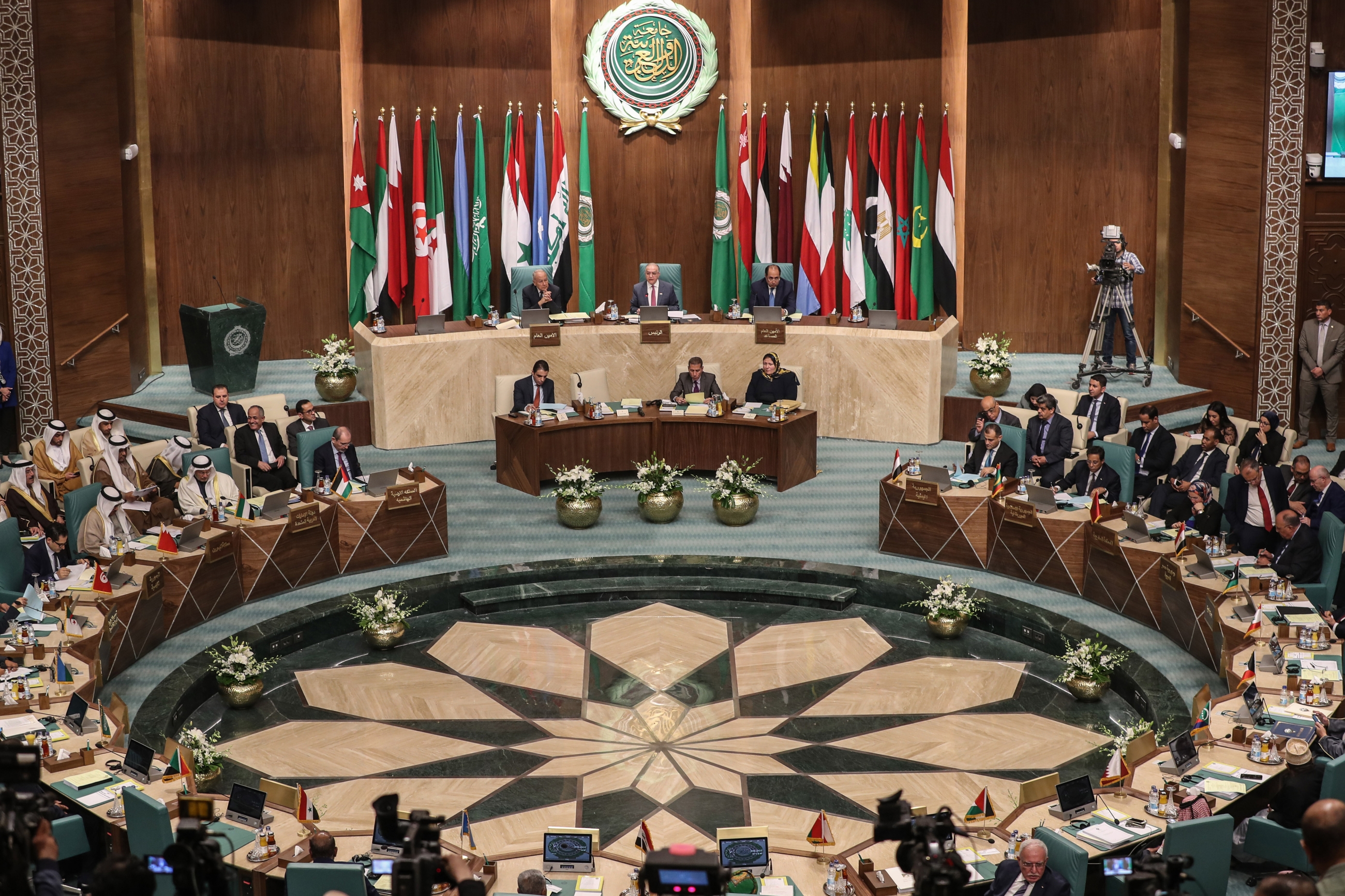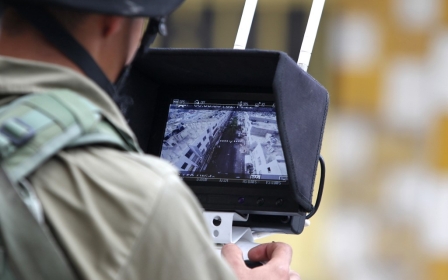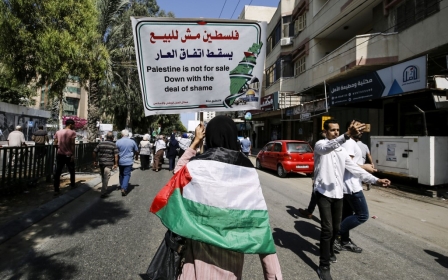Call to turn Arab League HQ into wedding hall over response to Israel-UAE deal

A campaign on social media has been launched by activists calling for the Arab League's headquarters in Egypt to be turned into a wedding hall after the organisation dropped a Palestinian draft resolution condemning last month’s normalisation deal between the United Arab Emirates (UAE) and Israel.
Following a video conference of foreign ministers on Wednesday, Arab League assistant secretary-general Hossam Zaki described discussions around the draft resolution as "comprehensive," adding they had "taken some time" but did not "lead in the end to agreement about the draft resolution that was proposed by the Palestinian side".
In response, Mohammed Amas from Jerusalem created a petition calling for the headquarters of the organisation to be turned into a wedding hall. The call has already been signed by more than 2,000 people.
"The time has come to take full advantage of the building of the so-called Arab League in Cairo for the benefit of the public and its interests, because at the moment it is not working for the sake of anyone's affairs, so I have decided to set up this electronic grassroots campaign to turn it into a wedding hall," said Amas.
He also reiterated that the campaign, which hopes to garner one million signatures, is non-partisan and was created only to "criticise the performance of the Arab League organisation".
New MEE newsletter: Jerusalem Dispatch
Sign up to get the latest insights and analysis on Israel-Palestine, alongside Turkey Unpacked and other MEE newsletters
Palestine and Arab states instead agreed to include an emphasis on their commitment to the 2002 Arab Peace Initiative, a two-state solution, and the land-for-peace principle, according to Palestinian Ambassador Muhannad Aklouk.
'Betrayal'
The Palestinian Authority (PA) and other factions have strongly criticised the Israeli-UAE normalisation deal, which will be formalised at a signing ceremony at the White House next week, branding it a "betrayal" of the Palestinian cause and a departure from the Arab peace initiative.
The Palestinian group Islamic Jihad called on the PA to withdraw from the Arab League "because this body includes countries that abandoned Palestine and embrace Israel and reject condemning the normalisation".
A number of people took to social media to voice their criticism of the Arab League and its Secretary-General Ahmed Aboul Gheit, who has been in post since July 2016.
Translation: Don't teach your children bad words like "Arab League" or "Ahmed Abul Gheit".
Some questioned whether the Arab League had ever represented Palestine and Arabs. Others had their own ideas where the Arab League should reside:
Translation: In a time when Arabs are scrambling towards normalisation, I suggest that the headquarters of the Arab League be moved from Cairo to Tel Aviv
Translation: The decision to condemn normalisation with Israel is dropped, how surprising. The only place they gathered was in this sewage system.
The Arab League was formed in Cairo on 22 March 1945 by Egypt, Iraq, Jordan, Lebanon, Saudi Arabia and Syria with the goal of "closer relations between member states and coordinate collaboration between them, to safeguard their independence and sovereignty, and to consider in a general way the affairs and interests of the Arab countries".
However, the regional bloc has often been driven by internal divisions and competing visions, with rare moments of displaying unity and often only able to adopt ambiguous resolutions and issue statements of condemnation.
Egypt was expelled from the Arab League in 1979 after then president Anwar Sadat negotiated a peace deal with Israel, ending 30 years of war between the two states.
PLO leader Yasser Arafat accused Sadat at the time of betraying the Egyptian people and for agreeing to a "false peace". Egypt was welcomed back to the league 10 years later.
In 2016, at a particularly low point for the organisation, Morocco announced its refusal to host the annual summit, dismissing it as "just another occasion" to "pronounce speeches that give a false impression of unity".
A meeting of the organisation in Algiers planned for 30 March this year was postponed following the outbreak of the coronavirus pandemic.
Middle East Eye delivers independent and unrivalled coverage and analysis of the Middle East, North Africa and beyond. To learn more about republishing this content and the associated fees, please fill out this form. More about MEE can be found here.




